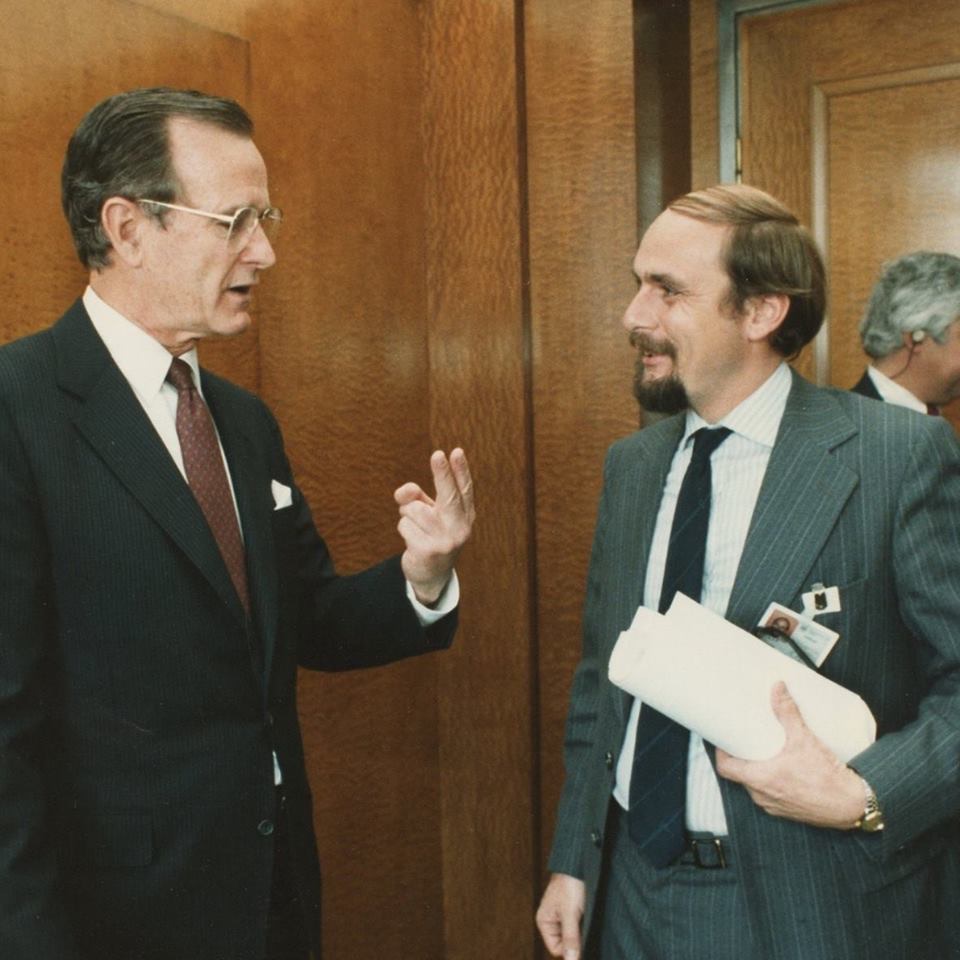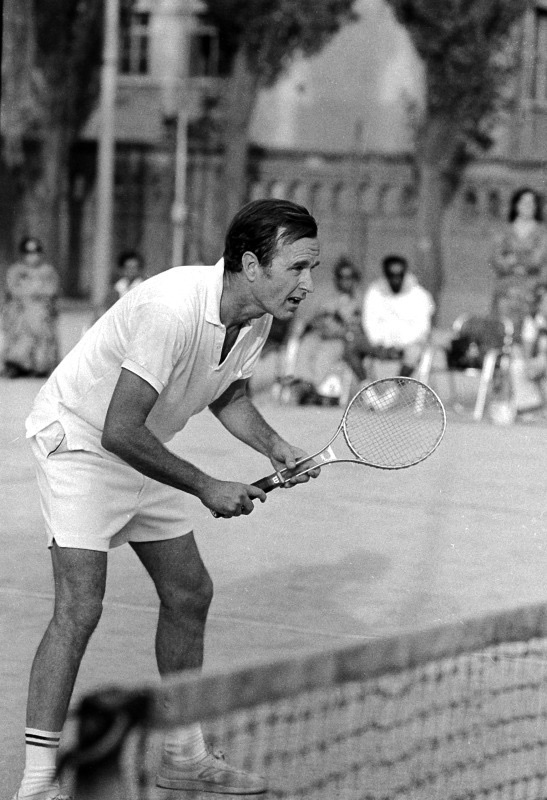Comment
In Peking with George Bush
Saturday 1 December 2018
 Sad to see George Bush senior has died. He was US Liaison Office Chief (ambassador in all but name) in Peking when I was a correspondent there (1975-77) and was often helpful to Reuters. He and wife Barbara cycled around the city and were great entertainers. He took Mandarin lessons seriously. Sons George junior and Jeb as well as Gerald Ford visited during my time there. Reuters and Reuter correspondents get several mentions in George’s autobiographical “China Diary” (published by Princetown, 2008).
Sad to see George Bush senior has died. He was US Liaison Office Chief (ambassador in all but name) in Peking when I was a correspondent there (1975-77) and was often helpful to Reuters. He and wife Barbara cycled around the city and were great entertainers. He took Mandarin lessons seriously. Sons George junior and Jeb as well as Gerald Ford visited during my time there. Reuters and Reuter correspondents get several mentions in George’s autobiographical “China Diary” (published by Princetown, 2008).
George was a keen tennis player. Attached is a picture I took of him at the Peking International Club. Much later, when US Vice-President, he visited Geneva to deliver a paper on chemical weapons to the UN. He spotted me at a Palais Des Nations press conference and I was surprised to be summoned later for a private meeting. We discussed old friends, events in China, tennis and his spaniel “C Fred”.
What appears to be a gesture of friendship was actually him counting the times he hammered me on the tennis court. In early 1976 he left Peking to head the CIA. He told me he bitterly regretted not having been in Peking for what would turn out to be the most interesting year in China since the 1949 communist takeover.
In January 1976 Premier Chou En-Lai died. I learned that news from the BBC World Service having just arrived in Hanoi having travelled to North Vietnam overland from Peking - the first Reuters correspondent to enter Hanoi for very many years. May saw the huge Ching Ming demonstrations in Tien An Men Square, ostensibly mourning Premier Chou but actually in support of his protégé, the then purged Deng Hsiao-Ping, and against the clique ruling in the name of the ailing Mao. Several hundred people were arrested, one of them me, though I was freed after a few hours.
Before dawn on 28 July I was shaken out of bed in my fourth floor apartment. Northeast China was being rocked by the third deadliest earthquake in modern history. The city of Tangshan was flattened, Tientsin badly damaged. In Peking some older buildings collapsed, particularly in the ancient “yellow city” courtyard area which used to surround the Forbidden City. The quake’s death toll is now estimated at around three quarters of a million. Strong aftershocks continued to rock the capital for many days and the population moved into makeshift shelters in the streets. I was forbidden from entering our building and the Reuters office was for a while a table on the British Embassy tennis court. Wisely, Counsellor Emrys Davies (Ambassador Ted Youde was absent) decided the embassy supply of champagne was in danger from the quakes and it should be drunk.
In China earthquakes were believed to portend the end of a dynasty. As if on cue, on 9 September Mao died. A few days later Tien An Men Square and the central Chang An (Eternal Peace) avenue were packed with highly-regimented mourners for his funeral. It was claimed two million took part. He remains there, embalmed.
1976, a China correspondent’s annus mirabilis, was capped in October with the arrest of “The Gang of Four” - Mao’s widow, Chiang Ching, and three officials, accused of plotting a power grab. ■
- « Previous
- Next »
- 577 of 1807